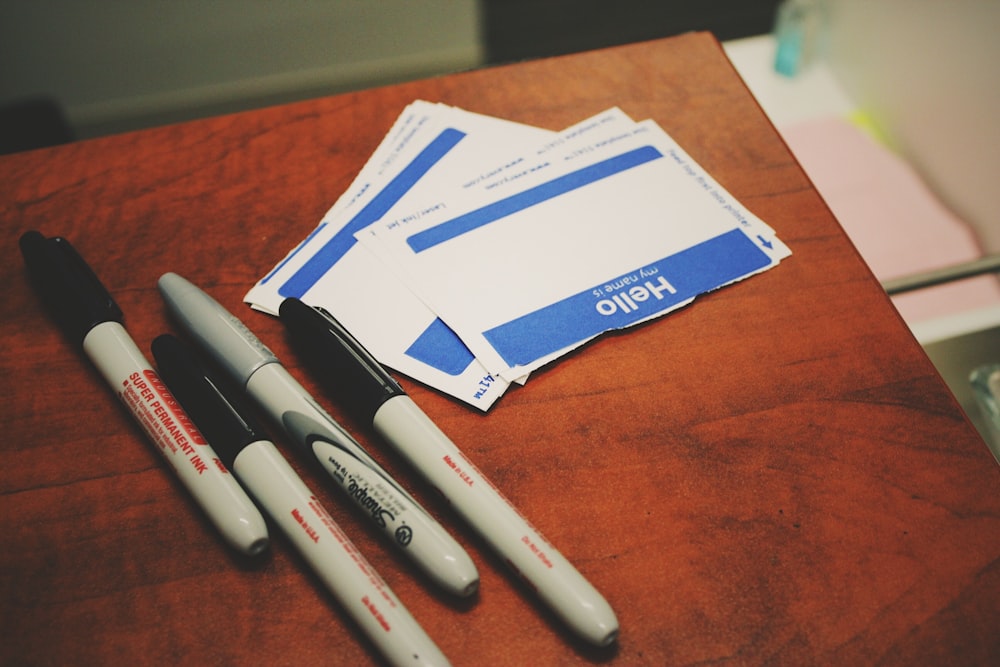“What’s in a name? that which we call a rose
– William Shakespeare, Romeo and Juliet
By any other name would smell as sweet.”
What’s in a name? William Shakespeare pondered the question of names in one of his most well-known plays. For Romeo and Juliet, their family names didn’t define their desires and values. But for those who see or read the play, the names set the stage for the drama that unfolds.
Despite young Juliet’s statement, names are important. They identity who we are. And sometimes, we go as far as changing them to identify who we want to be. They follow us through life on school papers, job applications, and legal documents. Our names introduce us to the world.
It’s no wonder then, why authors struggle to create the perfect names for their characters.
PLAYING THE NAME GAME
But how do you go about picking the right names for your characters? Sometimes, a name pops up out of nowhere. For most characters, however, finding the perfect name takes time. As a writer, you get to know your character as you write. You can’t always see how their names fit into the bigger picture of your story and/or series when you first begin writing.
While deciding on a name can be tough, there are some things to consider that can help you narrow down your options. Choosing the right name includes finding one that fits the character’s age, family background, culture, and region.
AGE
Some names fall in and out of favor. While names like Jacob and Emma remain popular in the United States, you don’t see many children named Homer or Maude anymore. You need to decide if your character will have a common/popular name for their age. Depending on the family’s background, your character’s parents might prefer a name from past generation.
SPELLING
Another thing that changes over time is how people spell names. In recent years, at least in the United States (and I assume other English-speaking countries), spelling names in non-traditional ways has become more popular. Sidney becomes Sydney; Jamie become Jaymee; Michael becomes Mikel. Spelling changes also reflect a more gender-neutral approach to naming a child. Names like Devin/Devyn, Ryan/Ryne or Riley/Rylee provide more options for your characters.
FAMILY TIES
In some families, parents pass names down through the generations. Sometimes, a parent will give a child the same middle name as a grandfather. Other times, a mother’s maiden name becomes a first name for a child. While parents often name a son after his father (Tom and Tom Jr.), there’s nothing to keep you from naming a character after their mother if that’s what the family might do.
CULTURE/RELIGION
Authors should also consider culture and religious expectations in naming a character. Every region around the world has different names based on their language and/or ethnic history. And in some countries, a government committee must approve names. Do a little research into what would be acceptable. A character’s religious background also plays a role in their names. If your character and/or the family subscribes to a particular religion, consider if your character would have a name that conforms to those ideas.
BEST PLACES TO FIND NAMES

If a character name doesn’t jump out to you right away, there are plenty of resources. Some easy online searches, and even observations in your everyday life, can provide all kinds of options.
BABY NAME WEBSITES/BOOKS
Baby name websites and/or books give you instant access to thousands of names for your character. You can search for whatever qualities you want for your character – the most popular current names in a specific country/region, popular names in Victorian England, or names that have fallen out of the Top 100 lists.
ACQUAINTANCES
You most likely know plenty of people from work, school, or community organizations. These people can be a great source to mix-and-match names. If someone you know has a great first name, use a variation of that. You can also take someone’s last name to pair with a first name you like. The key here is that you don’t use someone’s exact name. But taking a name from someone you know can be a good starting point. Then, adjust it with different first or last name, nicknames, etc… to fit your character.
OBSERVATIONS
When you meet someone you don’t know personally, be sure to note their name. If it’s something interesting, or even just a name you might not hear often, keep track of it. You never know when your server at a local restaurant or the grocery store clerk might find their way into your story.
MYTHS OR ANCIENT LANGUAGES
If you’re writing fantasy or similar genres, look for possibilities in the world of mythology and ancient languages. If your story is set in a place meant to resemble European fairy tales, look to myths and legends of those regions for ideas. Or, if there’s a name you like but doesn’t fit the fantasy genre, do a quick search to see what that name would translate to in a language that reflects of your setting.
SCIENCE TERMINOLOGY
If you write science fiction, it makes sense to turn to the sciences to name your characters. If you have aliens, robots, or even futurist humans, using science related terms can blend well into your story. Maybe your hero falls in love with someone from a human-like race named Nebula.

OTHER TIPS FOR NAMING BOOK CHARACTERS
- KEEP A LIST – A few years ago I started keeping a Names List. Any time I came across a name I liked of that had an unusual quality to it, I wrote it down in this little journal. Keeping an ongoing list of names can save you a lot of time. When you start a new project or introduce a new character, flip open the list and see if anything jumps out.
- THINK ABOUT OTHERS – When naming characters, you need to look both at the individual and collective group of characters. Unless you have a family where all the kids have names that start with the same letter, you want to look for repetition. Do too many names start with the same letter? Are there too many names that sound alike? Sometimes, this can be strategic depending on your genre and story. But if not, be sure to change things up.
- CHECK COPYRIGHT/TRADEMARKS – In general, names can’t be copyrighted or trademarked. However, there are some legal issues to consider. It’s best to steer clear of any well-known characters from either books or movies and television. You can absolutely use these for inspiration in naming your own characters but avoid using them directly. Instead of Luke Skywalker, maybe your hero is Lucas Starr. And while there might be thousands of real people named Harry Potter around the world, because the book and movie series carry licensing trademarks, you don’t want to name your character after the boy wizard.
- FAMOUS NAMES – Along with copyright and trademarked names, it’s best to avoid using names of celebrities, athletes, or other well-known figures. Again, while the names themselves cannot be copyrighted, it can be a slippery slope. There might be dozens of Bradley Coopers in one city. But naming a character with the same name might upset his legion of fans. And unfortunately, sometimes this could cause legal action against you should the person in question take exception to your book.
- GET PERMISSION – If you’re writing a memoir or other types of more personal non-fiction, when possible, it’s best to get permission to use someone’s real name. This doesn’t apply to general biography or historical accounts. But if you’re writing about legal issues, traumatic events, or anything that could be overly personal, getting permission to use a real name is important. This is especially true if there are family members or friends involved, or if you’re using a client’s story to illustrate a point. Sometimes, however, even if you have permission, it might be best to use a fictional name to protect privacy.

For most authors, your characters become family in some ways. You get to know them as they emerge throughout the story. So having the right name for them is important. However, don’t feel you must find the perfect name from the beginning. Often, names change as the story plays out.
As you write your story, use the many resources available for coming up with a perfect name. But don’t let finding the right one hold you back from doing the writing writing. Your characters will show up when they’re ready.
**What are your favorite book character names? For authors, do you have a favorite character name from one of your stories? How did you come up with the name?**
Reignite your creativity!

Subscribe to get new content, monthly newsletter, and important updates. You'll also receive a free download - "30 Days of Creative Inspiration."

